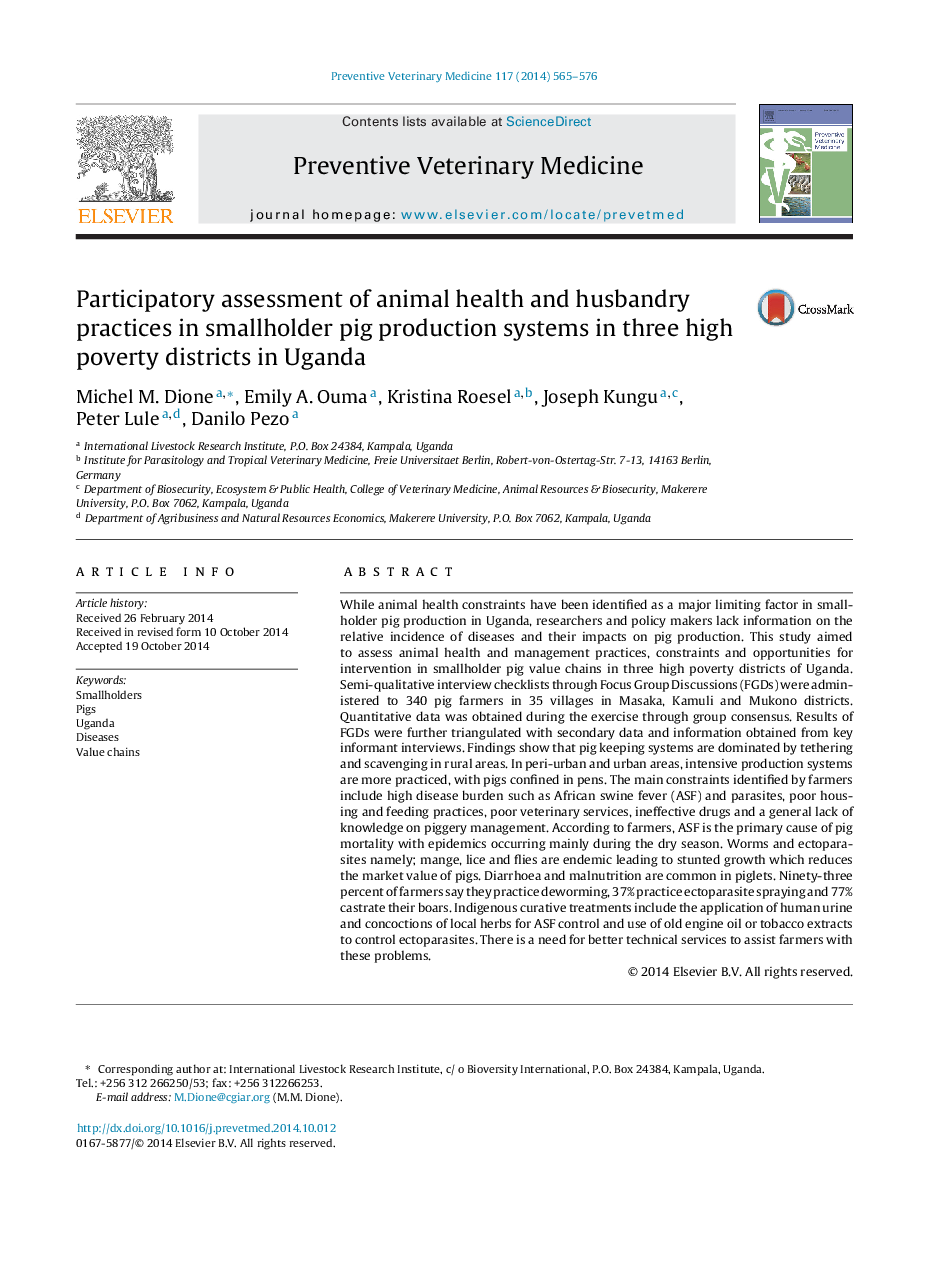| کد مقاله | کد نشریه | سال انتشار | مقاله انگلیسی | نسخه تمام متن |
|---|---|---|---|---|
| 2452517 | 1554173 | 2014 | 12 صفحه PDF | دانلود رایگان |
• We assessed perception of smallholder farmers on animal health and husbandry practices in the pig value chain in three district of Uganda.
• African swine fever and parasites were ranked highest by farmers as constraining the smallholder pig production.
• Deworming was considered to be the most applied husbandry practice in all districts.
• Besides diseases, main constraints to pig production were lack of knowledge by farmers on management practices, poor feed quality and poor health delivery systems.
While animal health constraints have been identified as a major limiting factor in smallholder pig production in Uganda, researchers and policy makers lack information on the relative incidence of diseases and their impacts on pig production. This study aimed to assess animal health and management practices, constraints and opportunities for intervention in smallholder pig value chains in three high poverty districts of Uganda. Semi-qualitative interview checklists through Focus Group Discussions (FGDs) were administered to 340 pig farmers in 35 villages in Masaka, Kamuli and Mukono districts. Quantitative data was obtained during the exercise through group consensus. Results of FGDs were further triangulated with secondary data and information obtained from key informant interviews. Findings show that pig keeping systems are dominated by tethering and scavenging in rural areas. In peri-urban and urban areas, intensive production systems are more practiced, with pigs confined in pens. The main constraints identified by farmers include high disease burden such as African swine fever (ASF) and parasites, poor housing and feeding practices, poor veterinary services, ineffective drugs and a general lack of knowledge on piggery management. According to farmers, ASF is the primary cause of pig mortality with epidemics occurring mainly during the dry season. Worms and ectoparasites namely; mange, lice and flies are endemic leading to stunted growth which reduces the market value of pigs. Diarrhoea and malnutrition are common in piglets. Ninety-three percent of farmers say they practice deworming, 37% practice ectoparasite spraying and 77% castrate their boars. Indigenous curative treatments include the application of human urine and concoctions of local herbs for ASF control and use of old engine oil or tobacco extracts to control ectoparasites. There is a need for better technical services to assist farmers with these problems.
Journal: Preventive Veterinary Medicine - Volume 117, Issues 3–4, 1 December 2014, Pages 565–576
